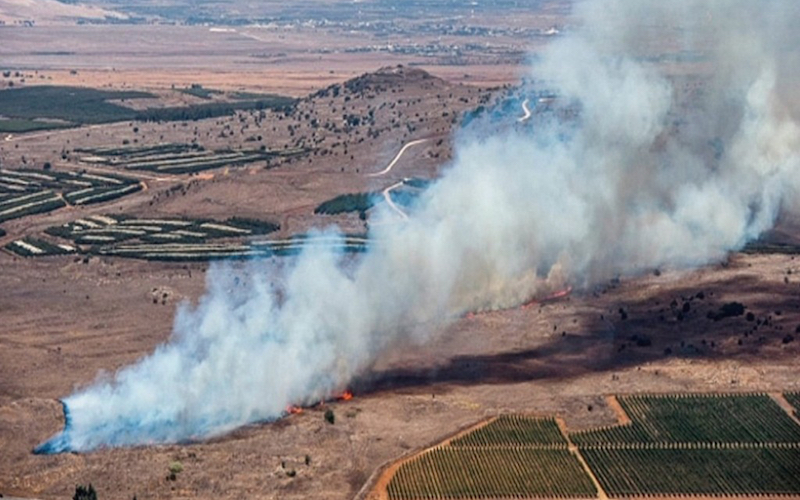
Russia, Turkey, Deconfliction and Distrust
I have promised myself to do no work tomorrow, Thanksgiving, so before I retreat into recreational seclusion, just a few thoughts on how the Su-24 shootdown crisis is shaping.
1. The Russians gave the Turks the opportunity to show their teeth – but the Turks were waiting for it. Even taking Ankara’s account at face value, the Su-24 was in their airspace for just 17 seconds before being attacked, and was making no hostile moves against the Turks. Incursions, even if usually in less politically-tense contexts, happen all the time, and generally you’d expect warning shots fired and then attempts to force the intruder to leave national airspace or to land. That the Turks fired and did so with such speed – and Turkish PM Erdogan says he gave the orders to fire himself, which in 17 seconds is pretty quick on the draw – to me very strongly suggests they were waiting for a Russian plane to come into or close enough to Turkish airspace with the aim of delivering a pretty pyrotechnic message.
In this respect, unusually enough, I find myself agreeing with Russian Foreign Minister Lavrov when he called it a “provocation” and an “ambush.” Let’s be clear, Moscow was foolish to let its planes stray so close to the border, doubly foolish if its rules of engagement allowed pilots to dip into Turkish airspace when it was operationally useful (and I suspect the latter was true).
But Turkey’s response went way beyond the usual practice. Don’t believe me? In 2012, the Syrians shot down a Turkish jet which had entered its airspace, and Erdogan’s furious response at the time was that “a short-term border violation can never be a pretext for an attack.”
(At the time, incidentally, NATO former Secretary General Anders Fogh Rasmussen called it “another example of the Syrian authorities’ disregard for international norms.” Somehow I don’t expect a similar critique of Ankara.)
2. No one wants this to escalate, and both Ankara and Moscow are working to that end. Presumably Erdogan feels satisfied the point has been made, and presumably Moscow, while no doubt harboring its grudges, is aware it has a great deal of lost diplomatic ground to make up and wants to be able to strike a deal with the West over Syria and Ukraine. To this end, while Putin was angry (“a stab in the back”) and Erdogan mulish (“everyone should respect the right of Turkey to defend its borders”), their respective foreign ministers are doing what foreign ministers do and trying to bring things back to the diplomatic track.
Pavel Felgenhauer has conjured the specter that “further dogfights are possible during which Russian planes will attack Turkish planes in order to protect our bombers. Sea battles between the Turkish and Russian fleets are possible.” But in fact, the mechanisms in place to control conflict remain robust. NATO is aware that Turkey is an ally, but is not piling in to increase the tension; Russia knows that at present it may have a certain moral authority in this incident, but if it turns to military pressure then NATO must back its maverick ally.
3. There are striking similarities between Erdogan’s Turkey and Putin’s Russia, not least their ability and propensity to move conflicts into the covert arena. I’ve written elsewhere (not least in this Wikistrat report) about the cynical intent behind Russia’s intervention into Syria. However, the Turks are acting in support of their national interests in Syria with equal ruthlessness, often neglecting attacking ISIS for hitting the Kurds (who are in so many ways the most effective force against the jihadists), smuggling weapons in the guise of humanitarian convoys (something we saw the Russians doing in Ukraine), and being willing to support groups which are often jihadist in their own terms, too. MIT, Turkish military intelligence, is every bit as cynically opportunist as the Russian GRU, and Erdogan every bit as erratic, brutal and ambitious as Putin.
But this is not just a problem because, as Fiona Hill and Kemal Kirişci have put it, “the personalities and political styles of Turkish President Recep Tayyip Erdoğan and Russian President Vladimir Putin seemed to complement if not mirror each other” such that these “similarities … have now come into play in a dramatic way.” It is also a problem because while the overt clashes may be headed off by the usual machinery of diplomacy, both countries – with large, extensive, secretive and brutal intelligence apparatuses and a history of working with both gangsters and terrorists – may well instead simply transfer these tensions to the covert arena. I would expect that in Syria itself, the Russians will put greater emphasis on hammering those groups under Ankara’s patronage. Today’s reported strike on a Turkish aid convoy may be the first manifestation of this. Meanwhile, the Turks will presumably arm and encourage those groups most able to give the Russians a bloody nose. What wasn’t really a proxy war before is likely to become one. Meanwhile, Moscow may put greater emphasis on countering Turkey’s efforts to establish regional influence (Azerbaijan is an obvious place of contention) and could support problematic non-state actors inside Turkey, from Kurds to criminals (those criminals not already tied to the Turkish state…).
This is a conflict that Ankara triggered, and while it is being managed, it is not going to go away. Nor is it just going to become another chapter in the histories of Russo-Ottoman rivalry. (There’s an excellent digest in the Independent here.) Instead, expect to see this play out in snide, deniable, but nonetheless bitter actions for months to come.
This article was originally posted in In Moscow’s Shadows.
